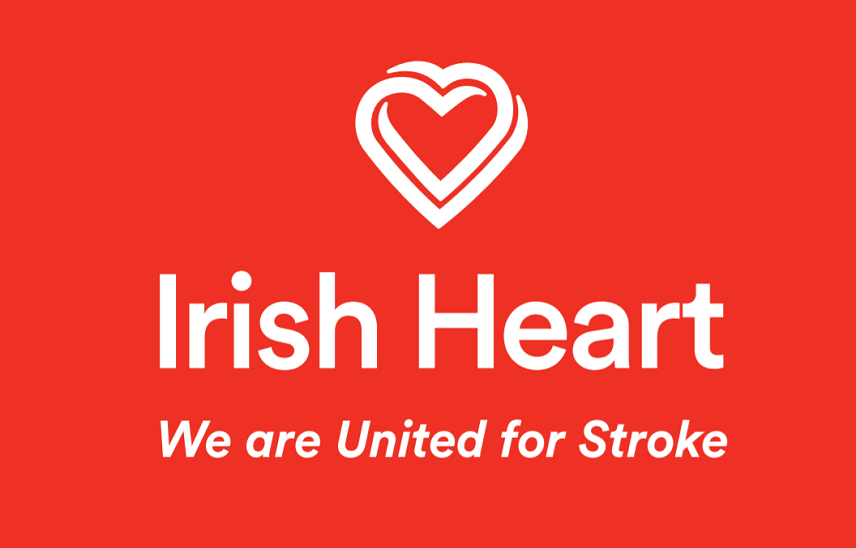
Chris Macey, Head of Advocacy for the Irish Heart Foundation
“The rate of death and permanent severe disability from stroke in Ireland has been reduced by more than 20% in the last decade. But hundreds of people are still dying every year when their lives could be saved. And thousands more are not receiving basic services that would enable them to make the most of life after stroke” says Chris Macey, Head of Advocacy for the Irish Heart Foundation and a SAFE Treasurer.
SAFE: What is one issue related to the life after stroke in your country that you think needs special attention?
CM: Irish stroke services compare well internationally in the vital early period after stroke occurs. But as soon as a person’s life is saved they typically start to regress through poor access to basic therapies in hospital. In therapy terms, patients then effectively walk off a cliff after they pass through the hospital gates – for most physiotherapy, speech and language or psychological services are grossly inadequate or non-existent unless they can afford to pay themselves.
As a result, more people than ever before are surviving stroke only for many to have their recoveries squandered by the failure to deliver the therapy services either in hospital or the community that will help rebuild their lives.
These services require upfront investment, but we do not need to spend more money on stroke. We just have to spend what we have in a different way. For example, our research showed that out of a direct cost of stroke to the Irish State of €557 million a year, up to €414 million was spent on nursing home care and less than €7 million on the community rehabilitation that can keep people in their own homes.
In other words the system starves vital acute and rehabilitation services of funding only then to spend huge amounts of money after the time patients can be helped most.
SAFE: What would be the solution, i.e. what is your organisation’s position regarding this issue?
CM: We need to recalibrate expenditure on stroke services in Ireland, through upfront investment in acute services and a much greater priority for community rehabilitation services.
The average onset of stroke here is at age 73 and because we will have 50% more 73-year-olds here within the next decade it is vital that we futureproof acute services, first by improving the standard of our stroke units – just one out of 28 fully meets ESO guidelines at present. We need around 200 extra therapists to meet current needs. We also need to invest in thrombectomy services that Irish doctors helped pioneer and to expand Early Supported Discharge (ESD) services that get patients home quicker and improve outcomes.
The development of ESD will also start to address the chronic deficits in terms of therapists working in the community where there are few champions at present for better services. In addition, we have helped to spearhead the development of community rehabilitation teams – working across neurological conditions – to continue therapies after ESD treatment has been completed. Their development in pilot locations and then nationally has to be speeded up however to address the huge unmet need among stroke survivors in the community.
More resources must also be provided to support stroke survivors living at home – the vast majority of stroke support in our country is provided by the Irish Heart Foundation without State assistance outside Dublin and the north west of the country.
SAFE: Please tell us more about your organisation.
CM: The Irish Heart Foundation is Ireland’s national charity fighting heart disease and stroke. Our main activities include:
• Provides information on heart health to the public and media
• Supports patients in managing heart disease and stroke
• Provides heart health programmes in schools and workplaces
• Co-ordinates the training of medics and the public in emergency lifesaving skills (CPR)
• Supports research, education and development in the medical profession
• Advocates for better patient treatment and services and for public health measures that protect and enhance cardiovascular health
We have been particularly effective in developing progressive public health policy in Ireland. We secured improvements to stroke services that have reduced mortality by 20% and permanent severe disability by more than a quarter in the last ten years.
We were a leader of the coalition that ensured Ireland became the first country in the world to ban smoking in the workplace that has saved a life a day in Ireland for 15 years since and that has reduced the youth smoking rate from 41% to 12%.
We also secured Ireland’s sugar sweetened drinks tax, along with restrictions on junk food marketing to children on TV and radio. In addition, we ensured that defibrillators are present on all flights into and out of Ireland and we helped secure major changes to the law to reduce the harm done by alcohol.





